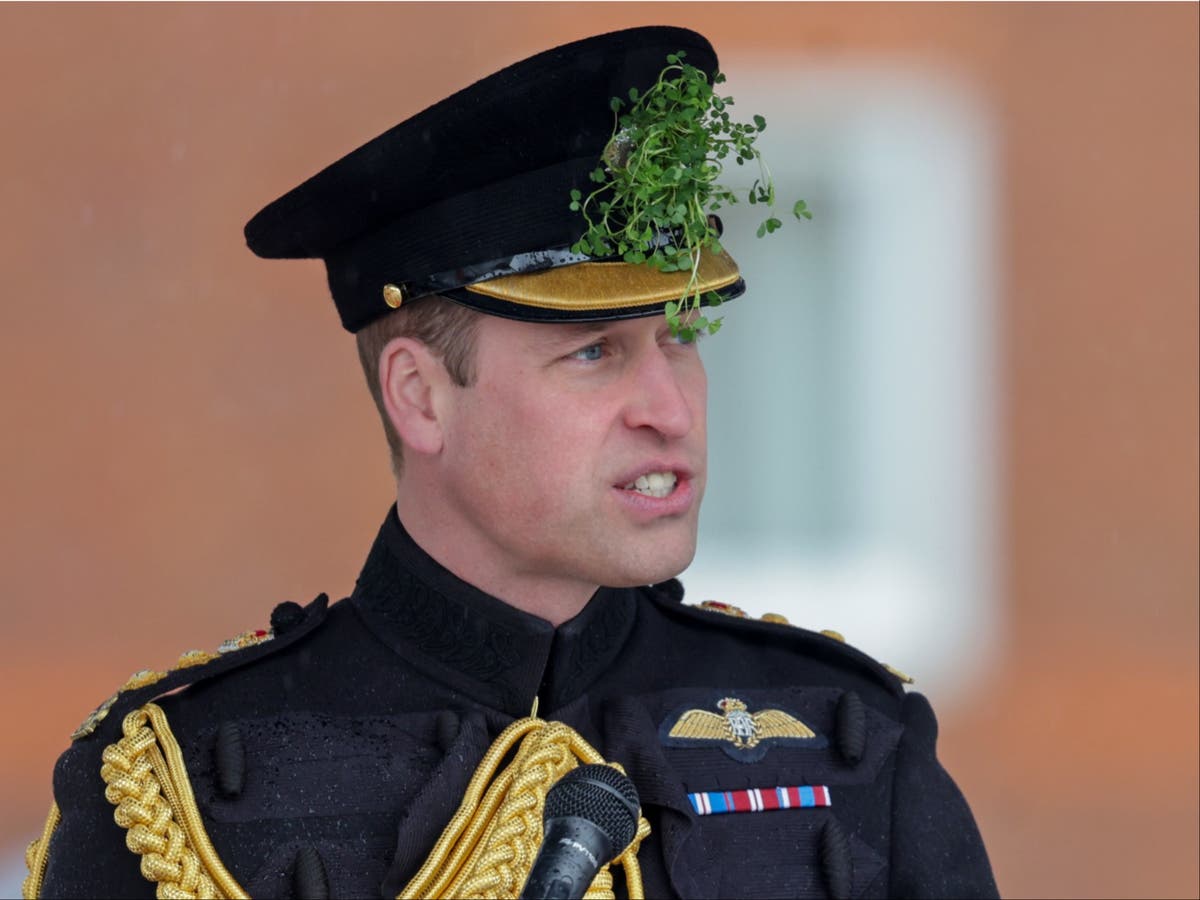This website uses cookies so that we can provide you with the best user experience possible. Cookie information is stored in your browser and performs functions such as recognising you when you return to our website and helping our team to understand which sections of the website you find most interesting and useful.

The Prince and Princess of Wales celebrated St Patrick’s Day with the Irish Guards on Friday (17 March) with a Parade at Mons army Barracks in Aldershot, England.
To mark the day, the pair wore shamrocks – a young sprig, which is used as a symbol of Ireland.
Kate wore a cluster of shamrocks as a brooch on her dress while William wore a collection of sprigs affixed to his hat.
The 1st Battalion Irish Guards at the parade also wore shamrocks on their military hats.
As photographs of William and Kate surfaced on the internet on Friday, some social media users have been left confused by the arrangement attached to William’s hat.
“Are they… wearing clumps of shamrocks? On their heads?” wrote one Twitter user.
“Is that a bush of 4 leaf clovers on his head?” puzzled another.
The three-leaved shamrock is a familiar symbol of Ireland and St Patrick
(PA)
What is the significance of a shamrock?
The three-leaved shamrock is a familiar symbol of Ireland and St Patrick, used by the Irish tourist board and almost every tourist shop in the country as a national symbol.
It grows plentifully all over the country, and takes its name from early Irish word seamair óg, or “young clover”.
Shamrocks always have three leaves, while clovers can have a fourth leaf. Another difference between a clover and a shamrock is that the latter grows in clumps, while four-leaf clovers are rare and grow one at a time.
Its association with St Patrick began centuries ago, when it was said that he used the plant’s three leaves as a symbol of the Holy Trinity while preaching Christianity in Ireland in the fifth century.
St Patrick’s Day, or the Feast of St Patrick, is a celebration in honour of the patron saint of Ireland, St Patrick.
The day of celebration, which marks the anniversary of St Patrick’s death, was originally a religious holiday meant to celebrate the arrival of Christianity in Ireland, and made official by the Catholic Church in the early 17th century.
Observed by the Catholic Church, the Anglican Communion, the Eastern Orthodox Church, and the Lutheran Church, the day was typically observed with services, feasts and alcohol.



 Africana55 Radio
Africana55 Radio 
